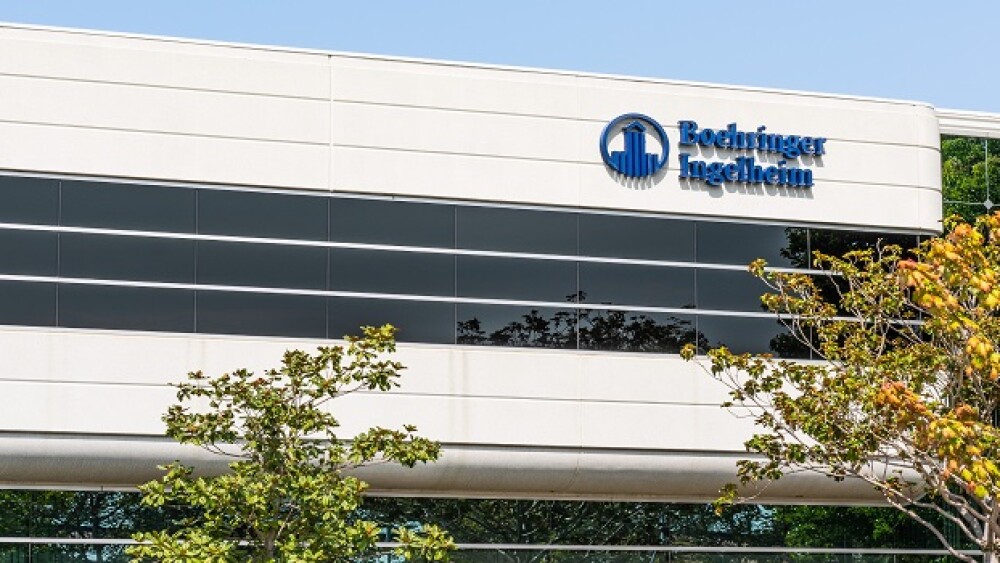CAMBRIDGE, Mass., June 20 /PRNewswire-FirstCall/ -- Transkaryotic Therapies, Inc. today announced positive top-line results from the company’s pivotal Phase III clinical trial evaluating its investigational human enzyme replacement therapy, iduronate-2-sulfatase (I2S), for the treatment of patients with Hunter syndrome. Hunter syndrome, also known as MPS II, is a rare, life-threatening genetic disorder with no available treatment. In the trial, patients who received 0.5 mg/kg of I2S on a weekly basis showed a statistically significant improvement in the primary efficacy endpoint (p=0.0049) compared to patients receiving placebo. Based on these results, TKT expects to file for regulatory approval of I2S in both the United States and Europe in the fourth quarter of 2005.
The primary efficacy endpoint of the trial, also referred to as the AIM study (“Assessment of I2S in MPS II”) was a composite endpoint of two clinical measures previously used to assess clinical benefit in MPS disorders - forced vital capacity and six-minute walk test. The mean improvement from baseline to week 53 in percent predicted forced vital capacity was 3.4% in patients receiving I2S compared to 0.8% in patients receiving placebo. The mean increase from baseline to week 53 in the distance walked by patients receiving I2S was 44 meters as compared to 7 meters in the placebo group.
Joseph Muenzer, M.D., Ph.D., of the University of North Carolina at Chapel Hill, an internationally recognized leader in the diagnosis and treatment of MPS disorders and the lead investigator of the AIM study said, “These findings are very encouraging for the medical and patient communities as we believe enzyme replacement therapy can bring new hope for patients and families addressing many of the symptoms associated with Hunter syndrome.”
Treatment with I2S was generally well-tolerated by patients in the trial. The most common adverse events observed were associated with the clinical manifestations of Hunter syndrome. Of the adverse events considered possibly related to I2S, infusion related reactions were the most common and were generally mild. No patient withdrew from the trial due to an adverse event considered related to I2S.
“We are extremely excited about the outcome of the study. In addition, we are very thankful to all the patients and their families who participated in this one year trial. Their commitment to this program was instrumental in generating the data which we believe will support regulatory approval of I2S,” said Kip Martha, M.D., Senior Vice President and Chief Medical Officer of TKT.
TKT expects full data will be presented at a medical meeting in the autumn of 2005.
Trial Design
The AIM study was a Phase III double-blind, placebo-controlled clinical trial conducted at nine sites around the world, including the United States, the United Kingdom, Germany and Brazil. The primary goal of the study was to evaluate the safety and efficacy of 0.5 mg/kg of I2S administered weekly compared to placebo. Additionally, the trial evaluated 0.5 mg/kg of I2S every other week compared to placebo. Ninety-six patients with Hunter syndrome were randomized to one of three groups with each patient receiving a total of 52 infusions of either I2S, I2S alternating weekly with placebo, or placebo. Of the 96 who enrolled, 94 completed the study and they all elected to participate in the open-label extension study of I2S at a dose of 0.5 mg/kg weekly.
Conference Call/Webcast
TKT will host a conference call and live webcast today, June 20, 2005, at 9:00 a.m. to discuss the AIM study. To participate by telephone, dial (913) 981-4905. A live audio webcast can be accessed on the TKT website at http://www.tktx.com within the Investor Information section. A replay of the call will be available for two weeks by dialing (719) 457-0820 and using the access code: 3246105. A replay of the webcast will be archived on the TKT website under Events in the Investor Information section.
About I2S and Hunter Syndrome
I2S is a human iduronate-2-sulfatase produced by genetic engineering technology intended for long-term treatment of Hunter syndrome. TKT’s I2S replaces an enzyme that is deficient in patients with Hunter syndrome, and therefore could potentially either stop or ameliorate the clinical manifestations of the disease. TKT’s I2S product has been designated an orphan drug in both the United States and the European Union. There is currently no effective therapy for Hunter syndrome.
Hunter syndrome is a hereditary disorder characterized by the body’s inability to produce the enzyme iduronate-2-sulfatase, which is essential in the continuous process of replacing and breaking down glycosaminoglycans (GAG). As a result, GAG remains stored in cells in the body causing progressive damage. The symptoms of Hunter syndrome are usually not visible at birth, but usually start to become noticeable after the first year of life. Often the first symptoms may include hernias, frequent ear infections, runny noses, and abnormal facial appearance.
As the disease progresses, a variety of symptoms appear including, enlarged liver and spleen, heart failure, decreased endurance, obstructive and restrictive airway disease, sleep apnea, joint stiffness, and, in some cases, central nervous system involvement. If central nervous system involvement exists, the life expectancy for patients with Hunter syndrome is typically 10- 15 years of age, however, some patients can survive into the fifth or sixth decade of life. TKT believes there are approximately 2,000 patients worldwide afflicted with Hunter syndrome in countries where reimbursement may be possible.
Additional information about Hunter syndrome is available online at http://www.hunterpatients.com.
About TKT
Transkaryotic Therapies, Inc. is a biopharmaceutical company primarily focused on researching, developing and commercializing treatments for rare diseases caused by protein deficiencies. Within this focus, the company markets Replagal(TM), an enzyme replacement therapy for Fabry disease, and is developing treatments for Hunter syndrome and Gaucher disease. In addition to its focus on rare diseases, TKT intends to commercialize Dynepo(TM), its Gene- Activated(R) erythropoietin product for anemia related to kidney disease, in the European Union. TKT was founded in 1988 and is headquartered in Cambridge, Massachusetts, with additional operations in Europe, Canada and South America. Additional information about TKT is available on the company’s website at http://www.tktx.com.
Forward-Looking Statements
This press release contains forward-looking statements including statements regarding TKT’s development of I2S, as well as statements containing the words “believes,” “anticipates,” “plans,” “expects,” “estimates,” “intends,” “should,” “could,” “will,” “may,” and similar expressions. There are a number of important factors that could cause the company’s actual results to differ materially from those indicated by such forward-looking statements, including: whether TKT will be able to complete and file applications for the marketing approval of I2S in the timeframes it anticipates; whether the FDA, the EMEA and equivalent regulatory authorities will view the data related to I2S in the same manner as TKT; whether such regulatory agencies will ask for additional information about I2S, including the manufacturing processes for I2S; whether such regulatory agencies will require additional clinical testing of I2S prior to approving I2S for commercial sale; whether such regulatory agencies will grant marketing approval for I2S on a timeline consistent with TKT’s expectations, or at all; whether I2S will achieve the commercial success anticipated by TKT; whether the results of future clinical trials will be consistent with the results of earlier clinical trials of I2S and warrant further clinical trials or submission of applications for regulatory approval for such products to the FDA, the EMEA and equivalent regulatory authorities; whether TKT will be able to complete the manufacturing development necessary to satisfy regulatory requirements on a timeline consistent with TKT’s expectations or at all, including with respect to repairing damage done to TKT’s Alewife manufacturing facility where I2S is currently manufactured, and to manufacture sufficient quantities of TKT’s products to satisfy both clinical trial requirements and commercial demand, or to manufacture material at all, if approved; the availability and extent of coverage from third party payors and the timing and receipt of reimbursement approvals for I2S; whether competing products will reduce any market opportunity that may exist; and other factors set forth under the caption “Certain Factors That May Affect Future Results” in the company’s quarterly report on Form 10-Q for the quarter ending March 31, 2005, which is on file with the Securities and Exchange Commission and which factors are incorporated herein by reference. While the company may elect to update forward-looking statements at some point in the future, the company specifically disclaims any obligation to do so, even if its expectations change.
Gene-Activated(R) is a registered trademark and Replagal(TM) is a trademark of Transkaryotic Therapies, Inc. Dynepo(TM) is a trademark of Sanofi-Aventis SA.
For More Information Contact: Justine E. Koenigsberg Senior Director, Corporate Communications (617) 349-0271 Daniella M. Lutz Manager, Corporate Communications (617) 349-0205
Photo: NewsCom: http://www.newscom.com/cgi-bin/prnh/19990913/TKTLOGOAP Archive: http://photoarchive.ap.orgTranskaryotic Therapies, Inc.
CONTACT: Justine E. Koenigsberg, Senior Director, CorporateCommunications, +1-617-349-0271, Daniella M. Lutz, Manager, CorporateCommunications, +1-617-349-0205
Web site: http://www.tktx.com/
Company News On-Call: http://www.prnewswire.com/comp/120657.html /




